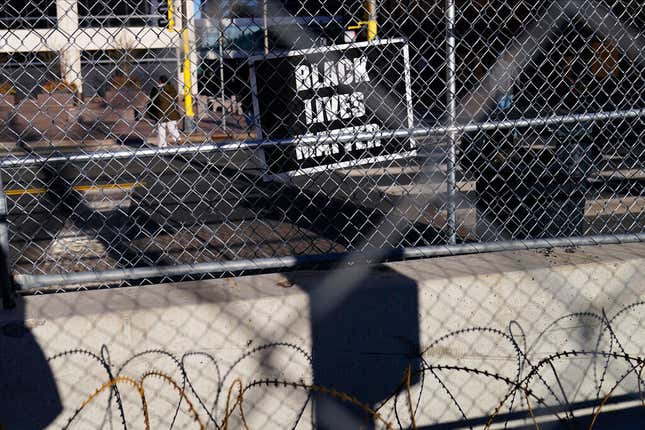
The members of the jury for Derek Chauvin’s murder trial have been selected, and the group of 15 who will decide the case appears to be a diverse one.
CBS News reports that the members of the jury for Chauvin’s trial in Hennepin County, Minn., were seated Tuesday, which will allow legal arguments in the case to begin as scheduled on Monday, March 29.
Chauvin is being tried on charges of second-degree murder, third-degree murder and second-degree manslaughter in the gruesome death of 46-year-old George Floyd on May 25 of last year.
From CBS News:
There will be 12 jurors and two alternates, with the 15th person being dismissed when the trial begins if the rest of the jury remains intact.
The seated jury is comprised of nine women and five men. Eight are White, four are Black and two identify as multi-racial. The jurors range in age from their 20s to a grandmother in her 60s.
Attorneys and the judge worked through more than 100 people, dismissing most because they acknowledged strong views about the death that was captured on bystander video.
The diversity represented in the jury is by no means a guarantee that the prosecution will be successful in convincing the members of Chauvin’s guilt.
A Buzzfeed analysis of the comments made by jurors during the selection process found that most had either favorable or neutral views about the phrase “Blue Lives Matter,” while many of the non-Black jurors had equivocal and, in some cases, what appears to be doubtful perceptions of the “Black Lives Matter” idea and movement.
From Buzzfeed:
[A] white single mother in her fifties checked that she had a “somewhat unfavorable” view of Black Lives Matter in her questionnaire. When questioned about it in court, she said she wasn’t sure why she selected that, adding, “I strongly believe all lives matter.”
“Maybe I was thinking that sometimes they were taking it too far,” she said. The woman suggested that the movement started because Black people “maybe felt that they were never seen or never heard,” adding, “I don’t believe that to be true, but I don’t know because I’m not them.”
The juror also said that when people say Black Lives Matter, she perceived them as saying that others’ lives don’t matter. She said that if someone told her Black Lives Matter, “I would probably tell them that all lives matter.”
The woman did not know Blue Lives Matter was related to police officers. “I took that to mean everybody else,” she said.
Most of the jurors had a neutral opinion of Floyd, though several of the white jurors mentioned the allegations of drug abuse in his past—two women said in their pre-jury selection questionnaires that he was “not a model citizen” and that he had a “checkered past.”
A record-breaking settlement for the George Floyd family announced by the family’s attorneys and Minneapolis officials amidst the jury selection process had prompted Chauvin’s defense lawyer to request that the trial be delayed or moved out of the city, on the basis that the announcement would prejudice potential jury members.
But presiding Hennepin County Judge Peter Cahill ruled against the defense’s motion last week, quite accurately saying that pre-trial publicity and continuing coverage will plague the trial wherever it is held. However, three people who had been selected for the jury were dismissed after saying the news of the $27 million settlement from the Minneapolis City Council would impact their ability to be impartial in considering the case against Chauvin.
The viral video showing Chauvin nonchalantly kneeling on Floyd’s neck for nearly nine minutes until the Black man lost consciousness and died spurred numerous protests around the country—and the world for that matter—in 2020. The highly anticipated trial will undoubtedly be closely watched as prosecutors and the defense deliver their opening statements on Monday.
Three other officers who have been charged with second-degree manslaughter and aiding and abetting second-degree murder in the incident will be tried together this August.
Chauvin could face a maximum penalty of 40 years in prison if convicted for second-degree murder. The maximum penalty for the third-degree charge is 25 years in prison.

